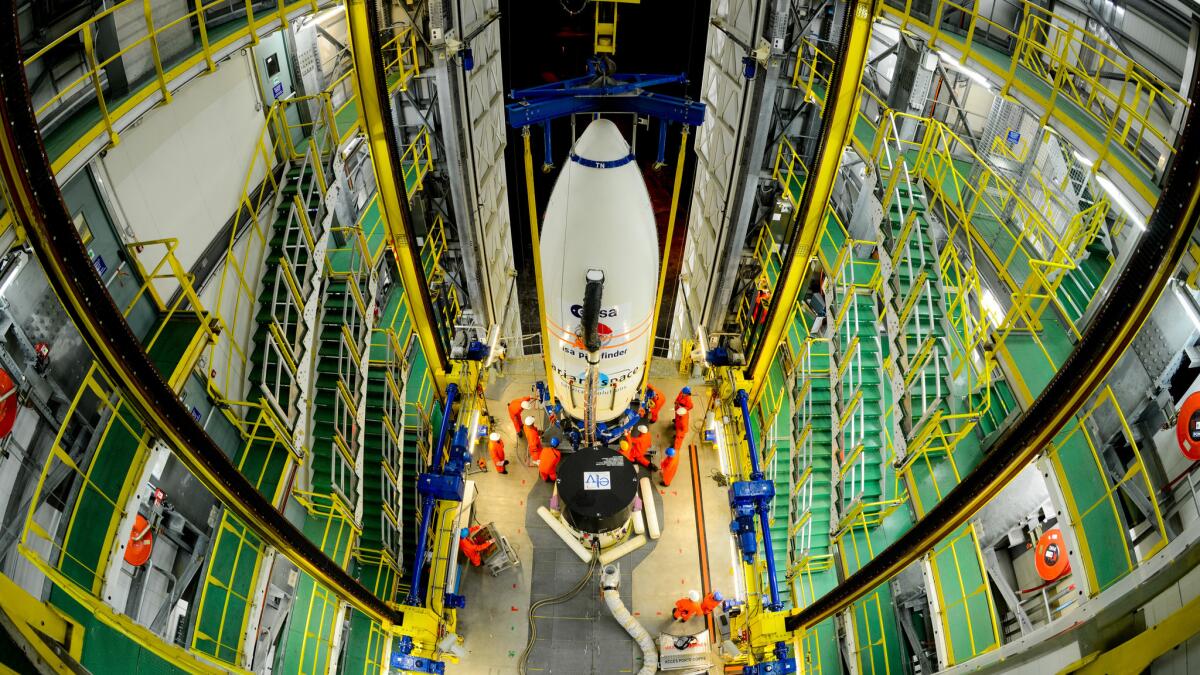British scientists are freaking out about ‘Brexit’ too

- Share via
Britain’s decision to exit the European Union has affected all aspects of British society – even science.
On Friday, the Royal Astronomical Society, which works to advance science research, took a break from promoting new findings in astronomy and geophysics to weigh in on the results of the referendum.
“Now that the result is clear, albeit by a narrow margin, the whole scientific community, including the RAS, will need to consider the implications for research in the UK,” the organization wrote in a statement.
The editors of Nature Physics expressed their concerns about Britain leaving the EU back in the beginning of June in an editorial about the referendum, concluding that “there is no upside for UK science in the event of a vote to leave the EU in the upcoming referendum.”
Updates: Britain votes to leave European Union »

Britons voted Thursday to leave the 28-nation European Union, a historic vote that sent shock waves across the continent.
Nobody knows yet what the impact of the country’s “Brexit,” or departure from the EU, will mean for British scientists
“We are in uncharted territory,” John Zarnecki, president of the RAS, told the Los Angeles Times. “Nothing like this has ever happened before.”
Zarnecki noted that the referendum vote will have no direct impact on scientists’ involvement with the European Space Agency, the European Southern Observatory and CERN. But he worried about more subtle repercussions, like whether Britain would no longer be seen as an open and welcoming place in which to do high-level research.
The RAS statement suggested that free movement between countries has been essential for research, by helping them recruit international scientists.
The organization also expressed concerns about the future of science and engineering collaborations that included its members. Among them are efforts funded by the European Research Council and Horizon 2020 program, which has set aside 80 billion euros (almost $90 billion) for research and innovation.
“The Society asks the government to continue UK participation in all of these, and to make the necessary financial contributions to allow UK groups to lead bids for these funds,” the researchers wrote.
See the most-read stories in Science this hour »
Although the RAS did not make a formal recommendation to its members on which way to vote, the organization said that the overwhelming majority of British scientists and engineers were in favor of remaining in the EU.
“I have been privileged during my career to have worked in a research environment in Europe which has had few borders to either people or ideas,” John Zarnecki, president of the RAS, said in a statement. “We must strive to make sure that these rights are not taken away — this would be enormously to the detriment of U.K. society.”
Do you love science? I do! Follow me @DeborahNetburn and “like” Los Angeles Times Science & Health on Facebook.
MORE IN SCIENCE:
From Duryea to Tesla, cars have evolved much like Darwin’s finches
Super-sticky saliva helps chameleons catch huge prey, scientists say
It’s been 20 years since Australia had a mass shooting. How much of the credit goes to gun control?
UPDATES:
4:55 p.m.: This article was updated with additional details.
This article was originally published at 12:31 p.m.




